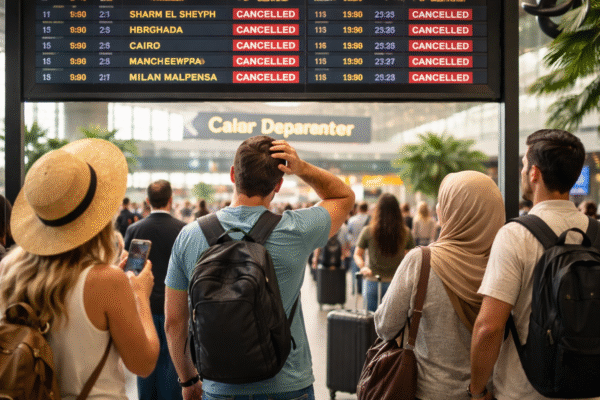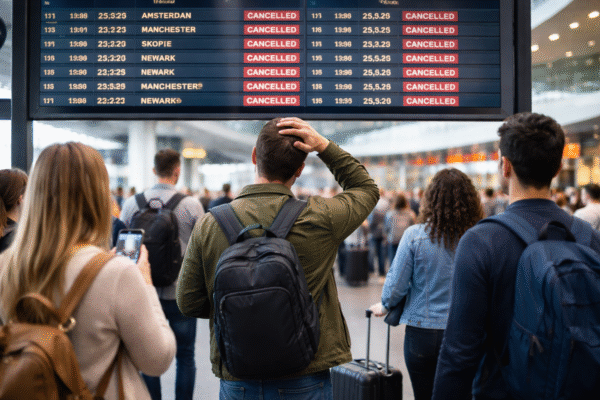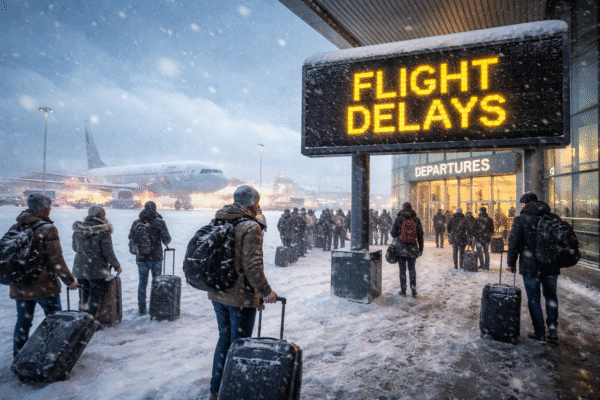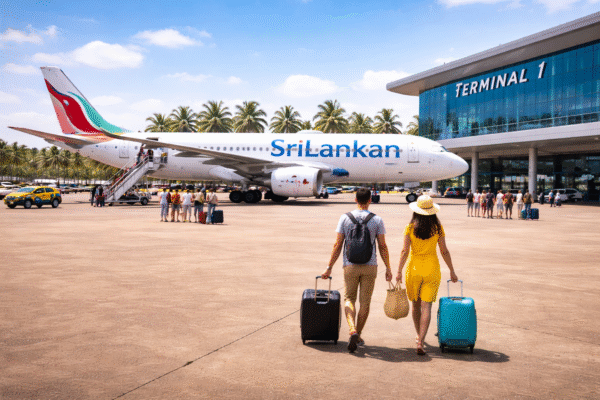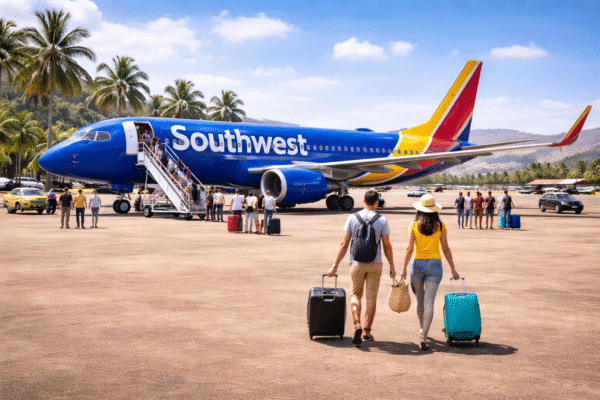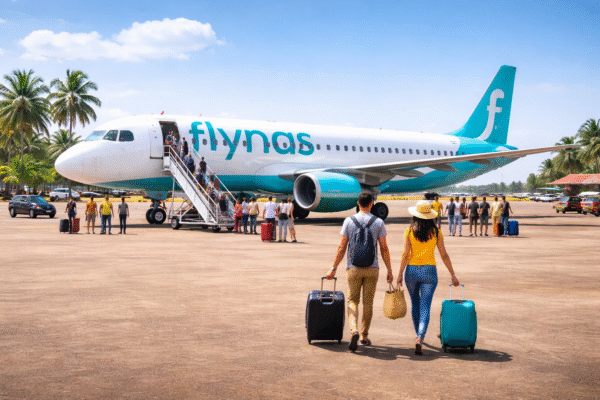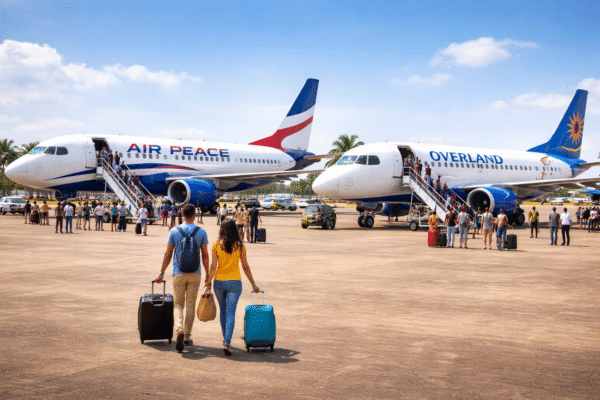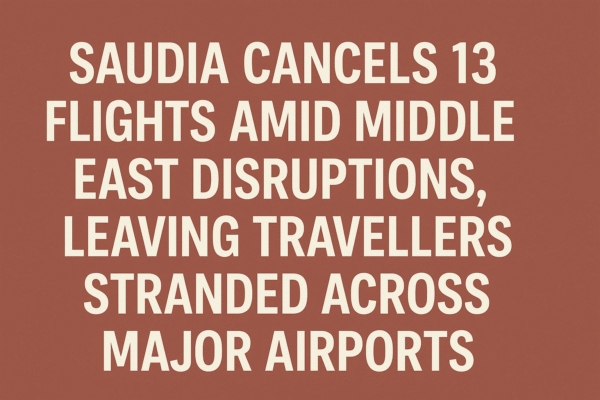Middle East — Saudi Arabia, UAE, Egypt – On August 22, Saudia Airlines canceled 13 flights and imposed multiple delays across a network of regional airports, stranding travelers and triggering widespread travel disruption. The sudden closures left many passengers scrambling to rebook or seek travel alternatives.
Scope of the Disruptions
According to Travel And Tour World, the cancellations affected flights at key hubs including King Abdulaziz International (Jeddah), King Khalid International (Riyadh), King Fahd International (Dammam), as well as regional airports in Gizan, Sharurah, Najran, and Al-Jouf, plus Cairo International in Egypt and Dubai International in the UAE.
Passenger Impact
Thousands of travelers found themselves stranded amid minimal communication. Reports from Jeddah detailed long wait times and confusion at check-in counters. One passenger lamented:
“There was no information given at the airport, and when we did hear something, it was too late to rebook my connecting flight.”
With summer travel at its peak, many passengers were en route to holiday locations, business meetings, or family visits—all plans thrown into disarray by the cancellations.
Causes Behind the Curtain
While Saudia has not confirmed explicit reasons, industry trends suggest several contributing factors:
- Operational and Maintenance Issues: Saudia likely faced aircraft servicing or technical delays that disrupted the tightly scheduled fleet rotations.
- Airspace Restrictions: Heightened geopolitical tensions in the Middle East—particularly affecting air corridors over Iran, Jordan, and Israel—have forced airlines to alter flight paths or cancel services altogether.
Notably, regional airspace upheavals are increasingly impacting global airline operations. For instance, major carriers like British Airways, Air France-KLM, and Singapore Airlines have rerouted, delayed, or suspended flights due to volatile airspace conditions.
Saudia’s Response and Travel Advisory
In response, Saudia has:
- Activated its contingency plan, offering assistance with rebooking, voucher compensation, and hotel accommodation where needed.
- Prompted customers to monitor updates via the airline’s website and mobile app and engage with customer service for support.
Tips for Travelers
Affected passengers should:
- Verify flight status online before heading to the airport.
- Contact Saudia support for rebooking or refunds, though availability may be constrained.
- Explore alternate flights via other carriers like Emirates, EgyptAir, or Gulf airlines—though capacity may be limited amid cascading delays.
- Allow extra time for future travel plans given ongoing unpredictability in the region.
Broader Implications for Tourism
This disruption isn’t just a blip—it underscores vulnerabilities in regional aviation:
- Travel Confidence: Consistency in flight operations is critical for tourist trust. Repeated disruptions deter future bookings.
- Operational Resilience: Airlines must invest in flexible routing, backup aircraft, and rapid response systems to manage crises.
- Strategic Planning: Tourism stakeholders must prioritize contingency protocols and traveler communication to contain reputational damage during regional unrest.
Summary Table
| Aspect | Details |
|---|---|
| Number of Cancellations | 13 flights affected across multiple airports |
| Main Airports Impacted | Jeddah, Riyadh, Dammam, Gizan, Sharurah, Najran, Al‑Jouf, Cairo, Dubai |
| Likely Causes | Maintenance issues, airspace restrictions due to regional tensions |
| Airline Actions | Rebooking, compensation, real-time status alerts provided |
| Traveler Advice | Check flight status, contact airline, explore alternatives |
| Implications | Need for operational resilience, better contingency planning |
These disruptions serve as a reminder of the complex challenges facing air travel in geopolitically sensitive regions. As Saudia navigates recovery, travelers are urged to stay informed, flexible, and prepared.
For more travel news like this, keep reading Global Travel Wire





